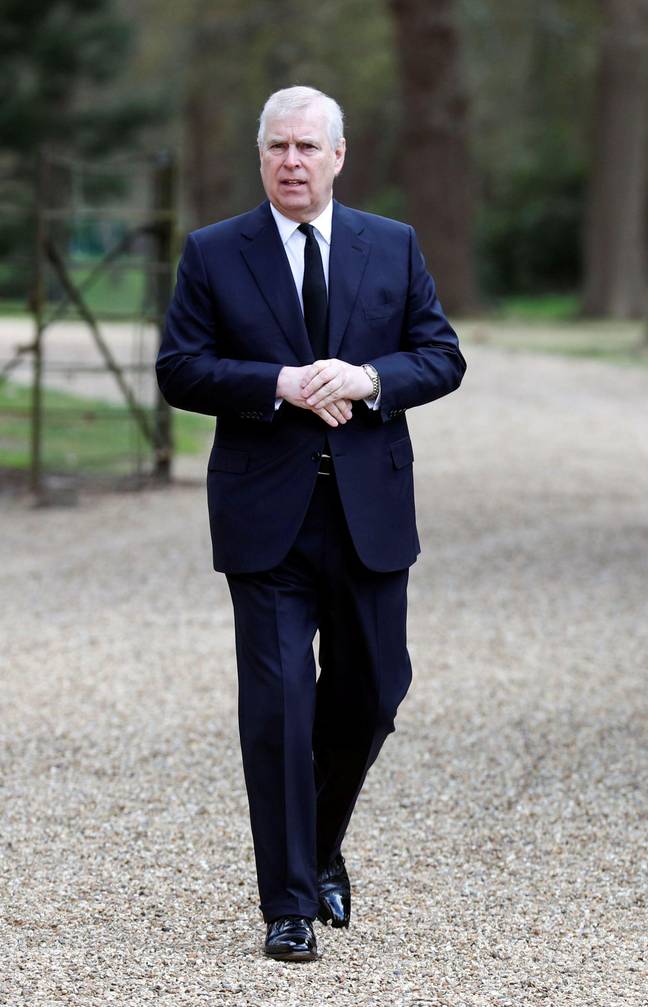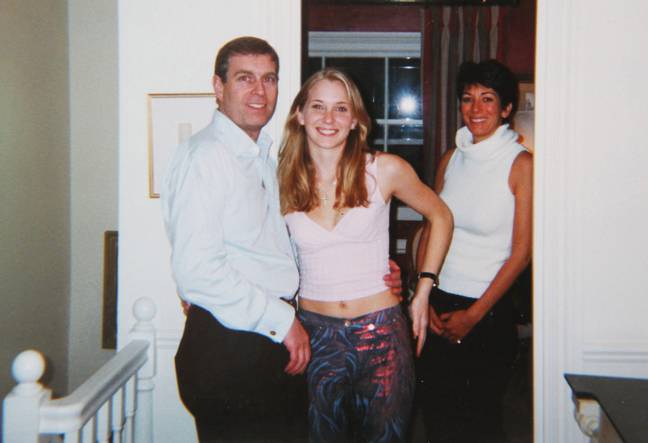
Ghislaine Maxwell's lawyer has revealed the convicted sex trafficker will no longer fight to keep the names of eight 'John Does' a secret.
The legal team representing the disgraced socialite have campaigned to ensure the identities remain a secret in the 2015 civil lawsuit brought on by Prince Andrew accuser Virginia Giuffre.
However, it appears they've now given up that fight.
Laura Menninger, one of the lawyers working for Maxwell, wrote a letter to Judge Loretta Preska this week explaining they would no longer stand in the way of the names being unsealed.

"After careful review of the detailed objections submitted by Non-Party Does 17, 53, 54, 55, 73, 93, and 151, counsel for Ghislaine Maxwell writes to inform the Court that she does not wish to further address those objections," Ms Menninger said.
The letter added that each of the people who have had their identities kept secret in the civil lawsuit have their own legal counsel who can assert 'their own respective privacy rights'.
The Independent notes Maxwell's team's move won't necessarily mean these names will be unsealed.
However, Ms Giuffre's legal defence will continue to expose each person.
"Now that Maxwell's criminal trial has come and gone, there is little reason to retain protection over the vast swaths of information about [Jeffrey] Epstein and Maxwell's sex-trafficking operation that were originally filed under seal in this case," Sigrid McCawley, a lawyer for Ms Giuffre, said in an exchange to Judge Preska.

Her letter added that the 'abundance of public information now widely available about Epstein and Maxwell's scheme through the thousands of pages of publicly available trial transcripts cuts against any continued sealing in this case'.
The Daily Mail reports how one John Doe has anonymously spoken out against the names being made public.
They said if their name was unsealed in the documents then it could cause them at the least 'annoyance and embarrassment' and at the most it could result in 'severe anxiety and distress,' and 'extreme personal, physical and reputational harm'.
Maxwell's move to not stand in the way of the process came on the same day as a judge ruled that Prince Andrew will face a sex abuse trial in the US.

The Royal believed he shouldn't face legal action with regards to allegations linked to deceased paedophile Jeffrey Epstein because of an agreement Virginia Giuffre had made with him back in 2009.
Outlining his reasons for denying the Duke of York's motion to dismiss the civil case against him, Judge Lewis Kaplan said an agreement in the civil settlement between Jeffrey Epstein and Virginia Giuffre 'cannot be said' to benefit him.
In his ruling, he explained: "The 2009 Agreement cannot be said to demonstrate, clearly and unambiguously, the parties intended the instrument 'directly,' 'primarily,' or 'substantially,' to benefit Prince Andrew.
"The existence of the requisite intent to benefit him, or others comparable to him, is an issue of fact that could not properly be decided on this motion even if defendant fell within the releasing language, which itself is ambiguous.

"Thus, independent of whether the release language applies to Prince Andrew, the agreement, at a minimum, is 'reasonably susceptible to more than one interpretation' on the equally important question of whether this defendant may invoke it."
The judge said the motion to dismiss was not legally sufficient.
Giuffre is suing the Queen's son for allegedly sexually assaulting her when she was a teenager, which is something the Duke of York denies.
She is seeking unspecified damages, but it has been reported that the sum could be in the millions of dollars.
She claims she was trafficked by disgraced financier Epstein to have sex with Andrew when she was aged 17 - a minor under US law.
Featured Image Credit: REUTERS/Jane RosenbergTopics: Ghislaine Maxwell, News